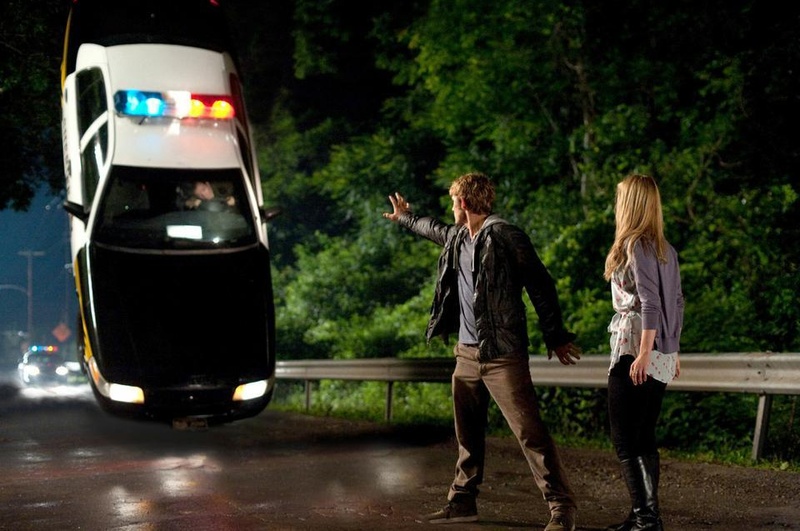The creative genesis of “I Am Number Four” is not difficult to reconstruct: in this age of smoothie meals and mixed salads, somebody at Dreamworks decided it would be a great idea to make a dual-genre movie that combined the teen angst of “Twilight” with the bombast of “Transformers.” While in theory this may have seemed like a good concept, in practice, D.J. Caruso’s attempted amalgam of cinematic styles rapidly devolves into a showy Michael Bay action flick which substitutes characterization and plot with impressive CGI creatures and intense fight sequences.
The opening of “I Am Number Four” feels very familiar. Echoing the start of “Twilight,” it introduces Number Four (Alex Pettyfer), a hunky yet troubled teenager who has recently been forced to move to a place called Paradise, OH, which “should have been called Irony, OH.” His backstory? He is one of nine alien children—the last of their race, of course—taken to Earth because they have “legacies”—special powers that will allow them to defeat the destructive race of Mogadorians. These Mogadorians are hunting down the children one by one, conveniently in order. Seeking to blend into the populace, Number Four takes on the unassuming alias ‘John Smith,’ and he and his guardian Henri (Timothy Olyphant) try to look natural. Henri stays home as a ‘writer’ while John heads off to school.
This is where “I Am Number Four” takes its teen movie turn, with Dianna Agron of “Glee” fame starring as the obligatory gorgeous ex-cheerleader love interest, Sarah. Within 10 film minutes, John and Sarah are madly in love and eating dinner at her parents’ house—unfortunately for the movie, the one thing CGI cannot do is character development.
To John’s dismay, the local quarterback hotshot (Jake Abel) still claims Sarah as his own, and typical high school drama ensues—complete with a missing father, a local spring festival, and a haunted house. Of course, there comes a scene in every superhero’s movie when he must save his beau from the clutches of evil. In this case, it isn’t the Mogadorians, but rather the more laughable menace of the school’s quarterback—backed by a football team which has somehow acquired night-vision goggles for the smackdown. The acting in these sequences is exactly what one would expect from the “Glee” backdrop—shallow, unbelievable, and predictably paint-by-numbers.
What saves the movie from its own silliness and soppiness are its true villains, the Mogadorians—tall, ugly aliens with red eyes who could easily serve as doubles for Lord Voldemort in the “Harry Potter” series. As John absurdly attempts to survive high school, the genuinely frightening Mogadorians are tracking him down in their Mustangs, alternatively passing as humans in prosthetics and scaring little children without them. Their well-realized malevolence lends actual urgency to a storyline that would otherwise be confused for daft dramedy.
The finale of “I Am Number Four” brings all the genre confusion and assorted awkwardness to a head, as each of the movie’s cinematic styles are stacked implausibly atop one another. In classic Michael Bay form, the film culminates with an epic battle scene. But in classic “Glee” form, that fight scene incongruously takes place in a football stadium. Finally, in classic superhero form, viewers get to watch John’s hands light up like flashlights and discover just what he can do with his much-vaunted superhuman powers. But as the audience has no investment in the characters or storyline, the climax is all flash and no substance. Viewers who are not 14-year-old girls looking for the next Edward Cullen should consider themselves forewarned.
Read more in Arts
Caverns Measureless to Man













